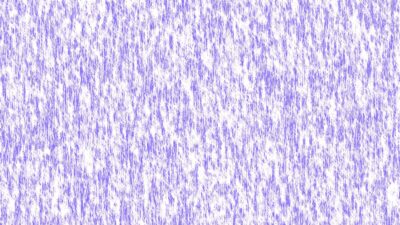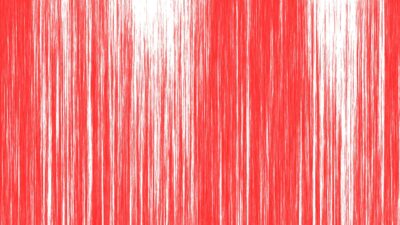What I remember the most about hearing TOXICITY for the first time is fear. Not the fear that comes with hopelessness, or the fear that comes with despair, or even the fear that comes with uncertainty, but the fear that’s that slippery combination of anticipation and trepidation most readily tied to the experience of watching a big budget horror film in the multiplex. The fear that comes with change as you experience a stumbling rush of emotions upon cracking open something of power you hadn’t previously thought possible. That hair-raising, goosebump-conjuring, blood-pumping fear, all shock and awe and intimidation that quickly gives rise to giddiness. What the fuck is this?
This is all, admittedly, pretty florid language to describe what ultimately boiled down to my childhood best friend putting on a CD in his mom’s mid-aughts Acura as we got driven to Burger King one day in the summer of ‘07, but still. Having both cut our teeth on the contents of his dad’s classic rock collection for the early years of middle school, our paths had differed earlier that year as I briefly flirted with whatever you want to call Alesana and Atreyu and the like: angry and loud, to be sure, but missing a certain sense of ballast. System of a Down’s TOXICITY firmly brought us back together as something to geek out about, something to play on repeat as we trudged through the spoils of Blockbuster video game rentals, something to spend all of baseball practices and beach days and family dinners wishing we could return to poring over and deciphering. “Wired were the eyes of a horse on a jet pilot,” indeed.
Even for 2001, an unrepentantly bonkers year for music (Radiohead! The Strokes! Jay-Z! Slipknot! Oh my!), TOXICITY is a strange album, made all the stranger by the commercial and popular foothold it managed to carve out: Peaking number one on the Billboard 200, going triple-platinum roughly a year from release, ending up on a laundry grab-bag of essential album lists, especially in the larger pantheon of “metal,” not to mention the enduring karaoke prevalence of “Chop Suey!” to this day. All of this from a thrash-influenced, vocally gymnastic, anti-American, not-so-secretly theistic album from four Armenian weirdos from Glendale.
—
Right off the bat TOXICITY proves itself to be built different, opening with “Prison Song,” which has to be one of the ballsiest first track decisions in the history of recorded music. I have vivid memories of the album winning the listening consensus of a van full of my middle school friends on the way to a birthday party, only for “Prison Song” to have everyone who only voted for the benefit of “Chop Suey!” to be left livid in their tracks. Featuring one of the band’s most demented and detuned riffs, Serj Tankian’s ominous whisper of “They’re trying to build a prison…” quickly leads to what can best be described as scream-spitting a collegiate thesis on the American carceral system over some of Daron Malakian’s most spidery guitar work outside of “Suite-Pee.” It fucking rules, and while it was absolutely my least favorite track at the time, the fact that the band ingrained missives such as “All research and successful drug policies show / That treatment should be increased / And law enforcement decreased / While abolishing mandatory minimum sentences” in radio single-chasing listeners across the world is a feat as impressive as they come. But as challenging an entry-point to the album as it may be, it’s also so distinctly System of a Down that it wraps around as unfettered genius. An emblem of a band firmly committed to speaking their minds in the sanctity of the mosh pit, unwilling to compromise on bizarro musical and philosophical ideation even while throwing down motherfucker after motherfucker of riffs, trusting and perhaps even insisting that their sizable fanbase be willing to comply.
Thankfully, the thematic train never stops rolling from there, as Tankian and company batter us from every direction in their furious screed against the political and cultural institutions of the time. (The groupie-critiquing “Psycho” is perhaps the anomaly in this regard, and the track with the least staying power in my current opinion of the album, but even still, it provides one of the few examples of the oft-dodged “nu-metal” label the band got saddled with, Serj’s groovy hopping and bopping over the main verse a fun, if fleeting, ride to get swept away in.) While Korn was focused on harrowing reckonings of personal trauma and Slipknot was wrapped up in nihilistic misanthropy, System of a Down largely focused their ire on the institutions and, well, systems that led us here. A large portion of TOXICITY is simply prophetic, or a sobering reminder it’s always been this bad, depending on how you look at it. “Deer Dance” gives us “Beyond the Staples Center you can see America / With its tired, poor, avenging disgrace / Peaceful, loving youth against the brutality / Of plastic existence,” as cogent a screed against capitalism as I’ve heard, made all the more poignant with the ACAB head-banging of “Pushing little children with their fully automatics / They like to push the weak around.” More straightforward victims of Tankian and Malakian’s pens include the tragedy of drug addiction on “Needles”—“Sitting in my room / With a needle in my hand / Just waiting for the tomb / Of some old dying man” needs no Genius annotation, but in a classic SoaD flip there soon manages to be a stadium-shout gangchant made out of the whimsical and head-scratching command to “Pull the tapeworm out of your ass!,” the classic spoon full of wonky sugar to help the medicine go down the band was untouchable at during their prime. Further directness can be found on “Shimmy” and the takedown of the American dream of eating your gruel, clocking in, clocking out, and not questioning the horrors of the country: “Indoctrination of a nation / Subjugation of damnation / Don’t be late for school again, boy! / Don’t be late for school again, girl!”
But more striking are the invocations of faith, certainly not the most commercial or popular stance a band, metal or otherwise, can dabble in. I think, ultimately, it’s something to ponder over and perhaps even wrestle with a bit: “Science” does offer some pause in 2021 with a chorus of “Science has failed our world / Science has failed our Mother Earth,” and yet, there is something to be said for “Science fails to recognize the single most / Potent element of human existence / Letting the reins go to the unfolding / Is faith, faith, faith” as everything we’ve been told will save or help us fails us one by one and we’re left with ourselves and what we make of the world to guide us forward. Any way you slice it, it’s just another indication that no album ever did it quite like TOXICITY, and the artfulness in which these religious inclinations are paired more ambiguously with environmental warnings on “Forest” is the pinnacle of this avenue the band was prone to taking.
As unique as the themes and lyrics are, the music rises to meet them at every occasion. Small moments such as the Modest Mouse-esque harmonics of the opening notes of “Psycho,” bassist Shavo Odadjian’s slam metal-challenging gravity drop on “Jet Pilot,” or the traditional Armenian folk leanings on the bridge of “Deer Dance” are what stick in my mind across the years, but as a whole TOXICITY represents a rarely-attempted and even more rarely achieved tightrope walk of innovative experimentation and knuckle-dragging brutality. “Forest” is likely the time-tested album highlight, a masterwork of a delicate dance between elbow-throwing riffage, treble-laden, nearly delicate verses, and a chorus that shows the band’s strengths firing on all cylinders, Serj crashing into our very souls as Malakian trudges upward, ever upward on the scale, interspersed with devolvement into thrash throwdowns anchored by John Dolmayan’s power-laden cymbal-and-snare abuse. Consistent, whiplash tempo and atmosphere shifts abound (“Prison Song,” “Deer Dance”), Serj’s Barnum & Bailey presence as a frontman building the metaphorical pit to frothing ecstasy before wiping it clear to wither and writhe over something sinuous and unsettling (“Bounce”). Hooks shine just as brightly as aggression (“Chop Suey!,” obviously, but also “ATWA,” “Toxicity,” and “Aerials”… every single charted!), evidence of a surprising and consistently overlooked Beatles apprenticeship that saw the band focus on cramming all they could into songs with the general length and intentions of pop craft; revisiting the tracklist, this is nearly a knee-shaking realization of genius and intention.
All that aside, there’s just a whole lot of the album that fucking whips. “Jet Pilot” remains one of the weirdest fucking songs I’ve ever heard to the day I’m writing this, structured around an eyeball-popping, punch-your-mother-in-the-face beatdown that goes harder than a goddamn diamond. “X” is absolutely unrepentant, a screed of fury and rage that evokes their mask-donned contemporaries from Iowa that would have been right at home on the band’s more razing debut. That opening chug of “Deer Dance”! Come on now! And of course, any piece on System of a Down would be remiss to not reiterate for the umpteenth time how Serj’s vocals, especially on TOXICITY, are something entirely singular. Slaloming around vocal ranges like a lubed-up Zamboni working an ice rink on the first day of spring, nobody else in the game would or could ever come close. Hellcat screeches, demonic growls, sniveling whimpers, salt water-gargling midrange screams, operatic runs, Jonathan Davis rippity-raps… the vocal delivery on TOXICITY is like throwing all of Woodstock ‘99 into an industrial washing machine and short-circuiting it with battery acid. It’s absolutely glorious.
—
All of that is why TOXICITY deserves to be remembered and celebrated 20 years later by the rest of you. But for me, TOXICITY is one of those albums that’s firmly ingrained to a sense of the personal, an album that transcends being a “favorite” and lands somewhere closer to being a constant, an album that gave me identity, an album I simply wouldn’t be the same without. Because, more than anything else detailed above, TOXICITY is an Armenian album and System of a Down is an Armenian band, and this was the first cultural artifact that allowed me to tap into my heritage, seeing it exalted and centered apart from stuffy church services and artistic renderings of the “Hayr Mer” scattered about the small apartments of various Armenian elders in the friend and family circles.
Armenia is a small and scrappy country. It’s not a household name, its culture does not enjoy a large amount of undebated global export due to the best efforts of the Turks to claim everything as their own and some admittedly copy-paste similarities with Lebanon, and while you might know to identify an Armenian by the ubiquitous “-ian” at the end of their name, the upsetting fact of the matter is that awareness of the country is mostly tied to the best efforts of an oppressor to wipe us out. What a lineage of trauma, to only be known for our intended extermination in an effort that is still barely officially recognized or acknowledged over 100 years later, made all the more mind-melting by the fact that Turkey and Azerbaijan are literally doing their best to kill all of us again as you read this while the world turns a blind eye and ear. It’s a culture of anger. It’s a culture of vengeance. It’s a culture of constantly having to fight for your very existence. And it’s why it was so hard for me to find a foothold in it when I was younger.
A rather disorienting dichotomy existed, where I would be surrounded and immersed in this fiery, insistent identity during the family’s weekly visits to church, only to have it all swept away upon walking out of the gates of St. James Armenian Apostolic a few hours later. The simple fact of the matter was that nobody knew what “Armenia” or “being Armenian” was! I didn’t speak it, I didn’t read or write it until a few years later, I couldn’t be a champion or a mouthpiece of it when kids in school would ask “what” or “where” questions. It was something I was, but despite it being in my blood I felt like an imposter. And my attitudes and willingness to engage with it suffered as a result, at various points even turning into a confused and sort of baleful distaste and dislike. I found the nationalism simple-minded and ignorant. I found the remembrances and recollections tired and droll. I found anything Armenian irrelevant and any insistence otherwise bordering on embarrassing.
But all of that began to change when TOXICITY hit the consciousness of my social circle. Now whenever me being Armenian would come up, it was always followed with an “Oh yeah, System of a Down!” As much as my parents may have hoped that a cultural awakening would have been tied to something that made their ears hurt less, this album was the first time things were tangible for me. It wasn’t some story from the “old country.” It wasn’t the story of my great-grandfather getting tipped off about a violent sentiment growing among the Turkish army towards Armenians and how he got out of town at the exact right time, my great-grandmother with similar good luck and endurance. It wasn’t a piece of Leon Partamian’s famous lahmajune from his Burbank bakery served at church functions (RIP to Leon, it’s just not the same lahmajune since his passing) or a piece of my Aunt Nini’s paklava. It was hearing “Chop Suey!” on KROQ with my friends and proudly being able to mention that they were Armenian, the first time I’d ever feel excited to bring anything Armenian up.
Until the rise of the Kardashian empire (before you ask, yes, I do have another Biblical amount of words on them), I think it’s fair to say that System of a Down had the weighty position of representing an entire culture and country to a generally aloof public, with TOXICITY being the album that threw this into the spotlight. To their credit, it’s never seemed to give them much consternation or trouble either way, their identity unapologetic (especially with 2020’s return to the studio that gave us the excellent “Protect the Land” in wake of Azerbaijan’s attacking of our borders) and their cultural references effortless. The aforementioned “X” is a direct tackling of the Genocide, Serj taking the vantage point of the oppressor as he screams at Armenians and immigrants in general to avoid multiplying, switching roles when begging us to “show the people how we died.” Traditional Armenian folk instrumentation and senisiblites abound, from the bridge of “Deer Dance” to the truncated, higher-register guitar lines and tremolos that are a direct descendant of what would be possible and preferred on the traditional Armenian oud. The somewhat questionable theism makes a lot more sense when considering the deep cultural ties to the church that the Armenians hold dear, an institution that speaks much more to being a port in the storm of centuries of victimization upon being established as the first Christian nation in a largely Islamic region than it does to championing the problematic interpretations of organized religion. Even the seemingly throwaway line “Eating seeds as a pastime activity” on “Toxicity” champions the preferred traditional Armenian snack of boiled sunflower seeds.
But it’s the “hidden” track, “Arto,” named after famed Armenian instrumentalist Arto Tunçboyacıyan, who features on the track, that’s the final word from System of a Down on TOXICITY, and that shouldn’t be overlooked. A performance of the church hymn “Der Voghormia,” a hymn that in more traditional renderings mostly consists of the repeated mantra “Lord have mercy,” perhaps the quintessential Armenian product across all of history and time. It brings a tear to my eye thinking of how many assorted mid-aughts grunts in cargo shorts ended up coming across, in some manner, no matter how small, the pain and anguish and desperation of my ancestors if they stuck around long enough after “Aerials.” Nevermind that “Der Voghormia” itself is one of the few songs that will make me ugly-cry on command without fail, a rather undeniable beacon of beauty and melancholy that could make a believer out of the most stone-hearted of us (“Sourp Adzvadz” does go harder, though). As far as largely introducing the modern world to a culture, TOXICITY couldn’t have done a better job.
TOXICITY was the album that introduced me to metal, the one I was “allowed” to like by my parents and, to be fair, the one I sort of forced myself to like, even “Prison Song,” because System of a Down was Armenian. As family lore would have it, my grandfather once spoke to my cousin’s school assembly about the Armenian genocide, with System of a Down and TOXICITY as the “Hello, fellow kids” entry-point. Without TOXICITY, I would have never eventually become charmed by Armenian language, music, and dance, finding more and more to love and feel anchored by. If TOXICITY didn’t exist, I wouldn’t have collected verbal Armenian recipes from our family friends and gotten them written down, preserving something that stretches back as long as can be remembered. In many ways, if I had never heard TOXICITY, I would have never sat down to record interviews with my grandfather in winter of 2019, spending as much time as possible getting our family history down on record as I could in what will inevitably become treasured family artifacts upon his eventual passing. And so, I wish TOXICITY the happiest of 20th birthdays, a friend, educator, companion, and family member that taught me about art, anger, beauty, history, and identity better than any classroom or specific person ever could. Sirum em qez.
















Comments